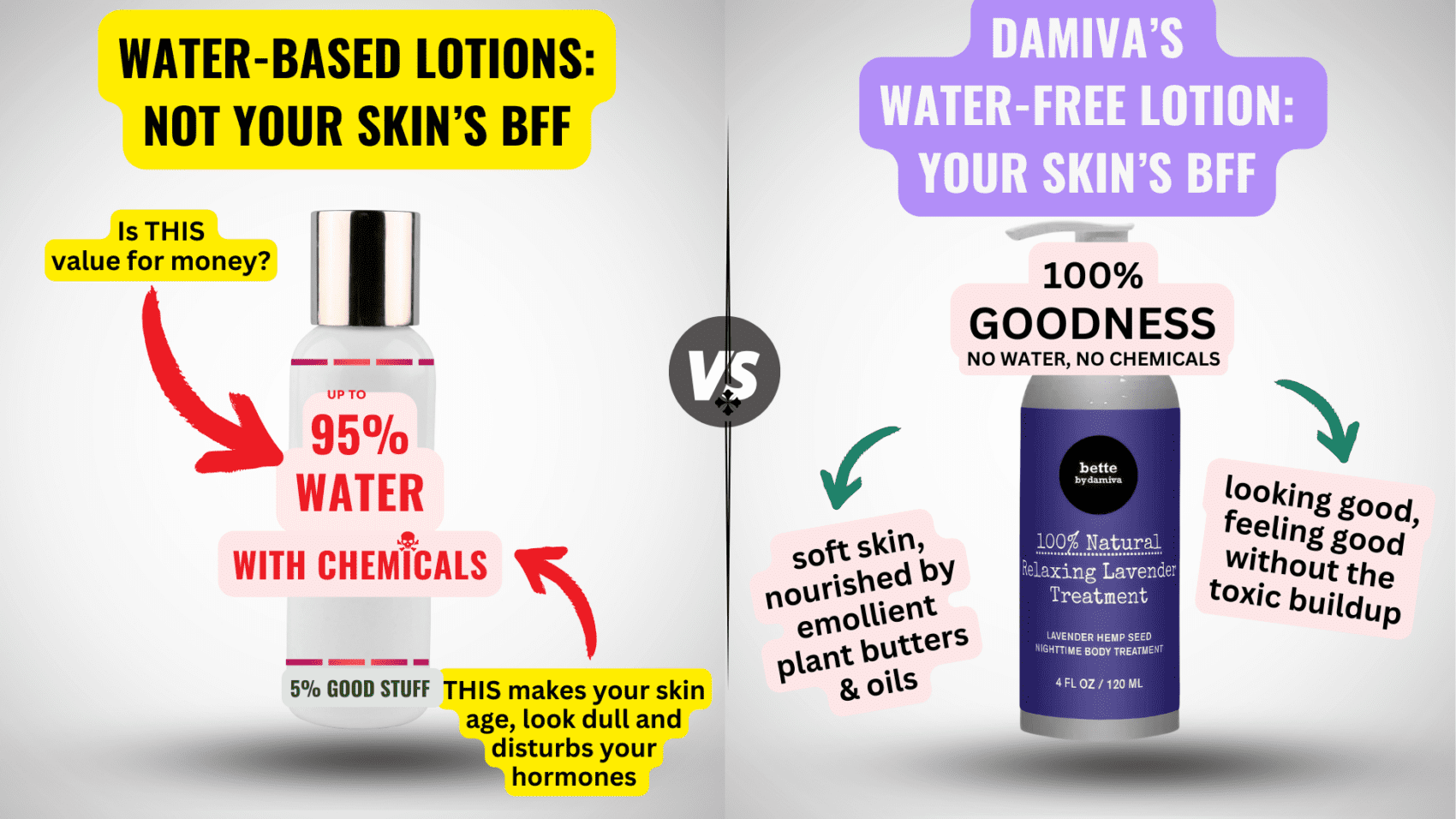Menopause is a significant life transition that can affect not just the individual experiencing it, but also their partner and the dynamics of their relationship. The hormonal fluctuations and the cessation of menstruation can lead to changes in libido, mood swings, and a host of other physical and emotional symptoms that can challenge intimacy and sexual relations. It’s not uncommon for couples to experience a sense of loss or confusion as they navigate this new phase, which can strain communication and mutual understanding.
Physical and Emotional Changes
During menopause, women undergo a variety of physical changes, such as hot flashes, night sweats, and vaginal dryness, which can make sexual activity uncomfortable or even painful. These symptoms can understandably lead to a decrease in sexual desire. Emotional changes are also prevalent, with many experiencing mood swings, irritability, and feelings of sadness or loss. These emotional shifts can create a disconnect between partners, as the person going through menopause may feel misunderstood or isolated.
Common Myths and Misconceptions
- Myth: Menopause marks the end of a woman’s sexuality.
- Myth: Intimacy issues during menopause are solely a woman’s problem.
- Myth: Hormone replacement therapy is a one-size-fits-all solution.
These myths can perpetuate misunderstandings and prevent couples from seeking the help and support they need. It’s crucial to debunk these misconceptions and recognize that menopause can be a time of transformation and growth for both partners.
The Importance of Communication
Open and honest communication is the cornerstone of navigating menopause and maintaining intimacy. Couples should strive to discuss their feelings, fears, and desires without judgment. It’s essential for partners to express empathy and support, offering reassurance that they are in this together. By fostering a dialogue, couples can explore new ways to connect and find pleasure, ensuring that their relationship continues to thrive during and after this transition.
Navigating the Challenges
Addressing Emotional Barriers
Menopause can be a time of significant emotional upheaval, which can create barriers to intimacy. It’s not uncommon for women to experience feelings of loss, sadness, or a diminished sense of femininity. These emotions can lead to a withdrawal from romantic encounters and a protective barrier around one’s sense of self. To navigate these emotional challenges, it’s essential to practice self-compassion and seek understanding from your partner. Open dialogue about these feelings can help both partners empathize and support each other, fostering a deeper emotional connection that transcends physical changes.
Managing Physical Symptoms
The physical symptoms of menopause, such as hot flashes, night sweats, and vaginal dryness, can make intimacy uncomfortable or even painful. Addressing these symptoms head-on is crucial for maintaining a healthy sex life. Over-the-counter lubricants or moisturizers can alleviate vaginal dryness, while hormone replacement therapy (HRT) may be an option for some women to manage other menopausal symptoms. Always consult with a healthcare provider to explore the best solutions for your individual needs.
Seeking Professional Help
There’s no shame in seeking help from professionals who specialize in menopausal health and sexual wellness. A gynecologist, endocrinologist, or sex therapist can provide valuable insights and strategies for managing menopause-related challenges. They can offer tailored advice, suggest treatments, and sometimes just provide a reassuring voice that what you’re experiencing is normal and manageable.

Lifestyle Adjustments for Better Intimacy
- Exercise Regularly: Physical activity can improve body image, boost libido, and reduce menopausal symptoms.
- Eat a Balanced Diet: A diet rich in phytoestrogens, found in foods like soy and flaxseeds, may help balance hormones.
- Practice Stress-Reduction Techniques: Mindfulness, yoga, or meditation can alleviate stress and improve mood, enhancing intimacy.
- Quality Sleep: Prioritize sleep to improve energy levels and mood, both of which are essential for a healthy sex life.
By incorporating these lifestyle adjustments, couples can create an environment that supports both physical and emotional well-being, paving the way for a reinvigorated romantic life during and after menopause.
Rediscovering Intimacy
Rekindling Romance
As the embers of physical passion may seem to cool during menopause, rekindling romance becomes a journey of transformation. It’s about finding new ways to ignite the spark that once came so effortlessly. Start by setting aside time for each other, focusing on shared interests and experiences that brought you together. Whether it’s revisiting old date spots, engaging in mutual hobbies, or simply spending quiet time together, these moments can reignite the warmth of your connection.
Exploring New Dimensions of Intimacy
Intimacy is not solely defined by physical acts; it encompasses emotional, intellectual, and spiritual connections. Menopause is an opportunity to explore these new dimensions. Engage in deep conversations, support each other’s dreams, and be open to learning together. Activities like taking a class, reading a book, or embarking on a spiritual journey can deepen your bond in unexpected and fulfilling ways.
The Role of Affection and Appreciation
Affection and appreciation are the bedrock of a romantic relationship, especially during the transformative period of menopause. Small gestures of love—holding hands, a gentle touch, a thoughtful compliment—can speak volumes. Regularly expressing gratitude for each other’s presence and contributions to the relationship fosters a nurturing environment where intimacy can flourish.
Intimacy Beyond the Physical Aspect
Physical changes during menopause can shift the way couples experience sexual intimacy, but this doesn’t diminish the capacity for closeness. Intimacy can be found in the quiet moments, the laughter shared, and the support given during challenging times. Encourage non-sexual touch and communication to maintain a sense of closeness. Remember, intimacy is about connection, and that can be as simple as a look that says, “I understand you,” or a hug that communicates, “I’m here for you.”
By embracing these approaches, couples can navigate menopause with grace and find that their capacity for intimacy is not diminished but rather transformed, offering new avenues for connection and affection. This Valentine’s Day, let it be a celebration of the love that has matured and the romance that is being continually rediscovered.
By the way, something for you, a little gift!!!
I am just in the middle of publishing my book. It’s about How women can balance their hormones. One part is about food and diet, of course.
Follow this link and enter your email.
I will send you this part of the book for free once the book is published. It has many concrete, practical tips and recipes and will help you feel better during menopause or times of Big hormonal fluctuations.
Annette, Damiva Lead for Health & Wellness

Valentine’s Day: Celebrating Love and Connection
Creating a Special Experience
Valentine’s Day offers a unique opportunity to create a memorable experience that celebrates the enduring bond between partners, especially during the transformative period of menopause. To craft a special day, consider personalizing activities that resonate with shared interests and passions. Whether it’s revisiting the place where you first met, enjoying a home-cooked meal featuring favorite dishes, or simply spending quality time together without distractions, the focus should be on fostering a deep sense of togetherness and appreciation for each other.
Incorporating New Traditions
As couples navigate the changes brought on by menopause, introducing new traditions can invigorate the relationship with fresh energy. Consider starting a Valentine’s Day journal where each year, both partners can express their feelings and reflect on the growth of their love. Alternatively, plant a garden together, symbolizing the nurturing and growth of your relationship, or establish a Valentine’s Day “bucket list” to explore new experiences together in the years to come.
Gift Ideas that Foster Intimacy
Gifts that encourage intimacy and connection can be particularly meaningful during menopause. Consider items that cater to comfort and relaxation, such as luxurious bedding or a weighted blanket, which can provide a sense of security and enhance sleep quality. For a more personal touch, create a playlist of songs that have been significant in your relationship, or gift a book of love letters you’ve written to each other. If you’re looking to spice things up, explore the world of age-appropriate sex toys and lubricants that can accommodate the physical changes of menopause, ensuring that sexual exploration remains a pleasurable and safe experience.
Planning for Togetherness
Intimacy isn’t solely about grand gestures; it’s also found in the quiet moments spent together. This Valentine’s Day, plan for uninterrupted time with your partner. Whether it’s a leisurely walk, a couples’ massage, or simply cuddling under the stars, the goal is to be fully present with one another. Discussing future dreams and aspirations can also strengthen your bond, as it allows both partners to support and understand each other’s evolving needs and desires during this stage of life.
Ultimately, Valentine’s Day is a reminder that love and connection can flourish at any age and stage of a relationship. By embracing change and committing to rediscover intimacy, couples can celebrate a love that is both resilient and evergreen.

THEN IT CONTAINS TOXIC CHEMICALS. WHY RISK IT GETTING SICK? GO CHEMICAL FREE.
Support Systems and Resources
Leveraging Support Groups
Menopause can be a challenging time for many women, and the support of others who are going through similar experiences can be invaluable. Support groups offer a safe space to share personal stories, discuss symptoms, and provide mutual encouragement. These groups can be found in various forms, including local community meetings, health clinics, or specialized menopause centers. Participants often find that sharing their journey with peers helps to alleviate feelings of isolation and fosters a sense of community and understanding.
Educational Materials and Workshops
Knowledge is power, especially when navigating the complexities of menopause and intimacy. Educational materials, such as books, pamphlets, and reputable online resources, can provide crucial information about the physiological and psychological aspects of menopause. Additionally, workshops led by healthcare professionals or menopause specialists can offer practical advice and strategies for managing symptoms and improving intimate relationships. These workshops may cover topics like hormone replacement therapy, natural remedies, and communication techniques to enhance intimacy with partners.
Online Communities and Forums
In the digital age, online communities and forums have become a go-to resource for many seeking advice and camaraderie. Websites like MENOHealth offer a platform for women to connect with others from around the globe, share experiences, and seek advice from those who understand the nuances of menopause. It’s important to remember to protect personal privacy when participating in these online spaces, and to approach shared information with a critical eye, as not all advice may be medically sound or suitable for every individual.
Counseling and Therapy Options
For some, the changes that come with menopause can strain relationships and personal well-being. In such cases, counseling and therapy can be beneficial. Mental health professionals specializing in menopause and sexual health can help individuals and couples navigate emotional barriers and rediscover intimacy. Therapy may involve individual sessions, couples’ counseling, or group therapy, and can address issues such as self-esteem, body image, and the rekindling of romantic connections. It’s essential to seek out licensed professionals who have experience with menopausal issues to ensure the most effective guidance and support.
Utilizing these support systems and resources can significantly ease the transition through menopause and help women and their partners maintain and even enhance their intimate connections. By seeking out support groups, educating oneself, engaging with online communities, and considering counseling, individuals can find the help they need to navigate this natural phase of life with confidence and positivity.
Do you know the three main ways that your body gets in touch with harmful chemicals with everyday products? Knowledge is Power!
The Ultimate Detox Guide will tell you how to lower your exposure to harmful chemicals!

Maintaining Intimacy in the Long Term
Continued Communication and Honesty
As couples navigate the waters of menopause, the keystone to maintaining intimacy is continued communication and honesty. Open dialogue about desires, concerns, and emotional needs should not be a one-time conversation but an ongoing discussion. This transparency fosters trust and understanding, allowing both partners to express their feelings without fear of judgment. It’s essential to discuss changes in sexual desires or physical comfort levels, as these can fluctuate during menopause. By maintaining an honest exchange, couples can adapt to these changes together, ensuring that intimacy remains a priority in their relationship.
Regular Check-ins and Adjustments
Intimacy is not static; it evolves as life circumstances change. Therefore, regular check-ins are crucial to ensure that both partners are satisfied with their intimate life. These check-ins can be informal conversations or scheduled discussions, but they should address any new challenges or opportunities for growth in the relationship. Adjustments may include trying new activities, experimenting with different forms of intimacy, or even seeking medical advice for persistent physical symptoms. By regularly evaluating their intimate life, couples can make necessary adjustments to keep their connection strong.
Celebrating Milestones and Successes
Menopause can be a challenging time, but it also presents opportunities for growth and deeper bonding. Celebrating milestones, such as the last menstrual period or the successful management of symptoms, can reinforce a positive outlook. Acknowledging successes, whether they’re related to intimacy or personal achievements, helps to build a culture of appreciation and support within the relationship. These celebrations can be as simple as a heartfelt compliment or as elaborate as a romantic getaway, but the key is to recognize and honor the journey together.
The Role of Self-Care and Individual Growth
Intimacy is not solely about two people coming together; it’s also about the individual health and happiness of each partner. Self-care plays a significant role in maintaining intimacy, as it allows each person to bring their best self to the relationship. Encouraging each other to pursue hobbies, exercise, and socialize can lead to individual growth, which in turn can enhance the couple’s connection. When both partners are feeling fulfilled and self-confident, they are more likely to engage in intimate moments with enthusiasm and joy.
In conclusion, maintaining intimacy during and after menopause requires effort, understanding, and a willingness to adapt. Through continued communication, regular check-ins, celebrating successes, and prioritizing self-care, couples can enjoy a fulfilling intimate life long after the Valentine’s Day chocolates have been eaten and the flowers have wilted. Embracing these practices ensures that romance and connection thrive, not just on special occasions, but every day of the year.
Conclusion: Embracing Change Together
Summary of Key Points
Throughout this article, we’ve explored the multifaceted relationship between menopause, intimacy, and romance. We’ve recognized that menopause can significantly impact relationships, bringing about both physical and emotional changes. By debunking common myths and misconceptions, we’ve opened the door to a more realistic and compassionate understanding of this life stage. The cornerstone of navigating these changes is effective communication, which fosters closeness and understanding between partners.
In addressing the challenges, we’ve seen the importance of tackling emotional barriers and managing physical symptoms through medical guidance and lifestyle adjustments. Professional help, whether through counseling or therapy, can be instrumental in maintaining a healthy relationship. Moreover, we’ve delved into the art of rediscovering intimacy, emphasizing that romance can be rekindled and new dimensions of intimacy can be explored, even as we age.
Encouragement for Ongoing Effort
It’s crucial to remember that maintaining intimacy and romance is an ongoing effort. Valentine’s Day is a wonderful opportunity to celebrate love, but the principles of affection, appreciation, and togetherness apply year-round. As you incorporate new traditions and create special experiences, remember that every small gesture contributes to a deeper bond. Support systems and resources are available to assist couples in this journey, offering a community of understanding and shared experiences.
The Future of Romance After Menopause
The future of romance after menopause is not a predetermined path but one that each couple can forge with intention and care. It’s a time that can be filled with growth, discovery, and a renewed sense of connection. By continuing to communicate honestly, check in with each other regularly, and celebrate both milestones and everyday successes, couples can build a relationship that not only withstands the test of time but also flourishes.
Self-care and individual growth are equally important, as they contribute to overall well-being and the health of the relationship. Embracing change together means recognizing that the journey through menopause and beyond is not just about coping with challenges but also about seizing opportunities for deeper intimacy and joy.
In conclusion, let this Valentine’s Day be a reminder of the love and connection that can continue to grow, even as life brings changes. With understanding, patience, and a willingness to adapt, the romance that blossoms after menopause can be as vibrant and fulfilling as ever. Embrace the journey together, and let the future of your romance unfold with each shared moment.










